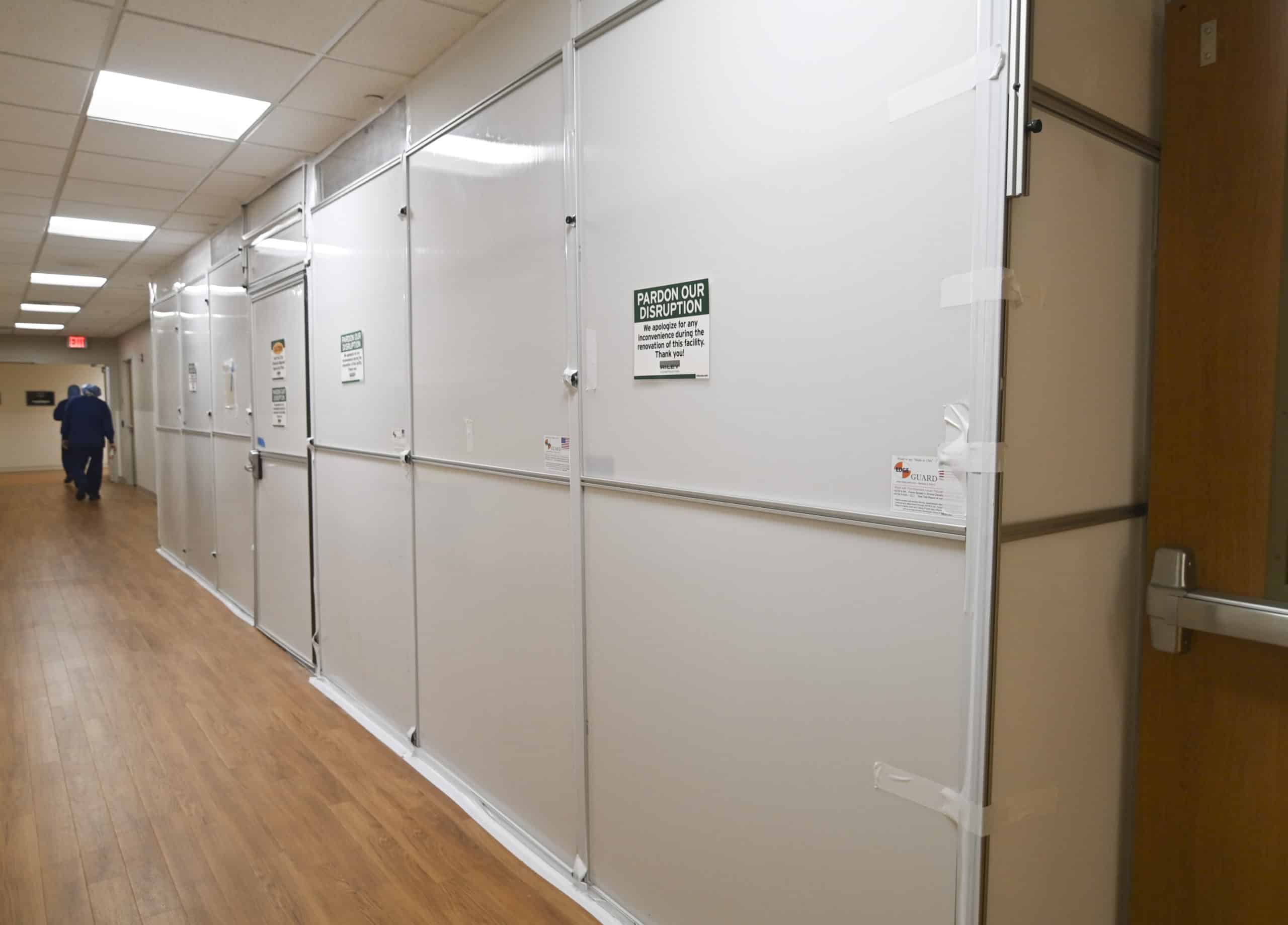- Knowledge Base
- |
- Science and Tech Market Trends
Steps to Pain-free GxP Compliance Builds
Compliance plays a fundamental role in highly regulated industries such as pharmaceuticals, biohealth, and food and beverage. The facilities where products are manufactured, stored, or tested depend on strict manufacturing practices that ensure the safety of workers and end-user customers. A single lapse could mean contamination triggering health risks, production delays, and even potential recalls and financial penalties.
When it comes to building in these environments, every detail matters, from air handling systems and gowning stations to modular finishes and validation documentation. For already time-challenged building owners, it’s a lot to juggle.
At Riley Construction, we have decades of experience in understanding and managing GxP compliance requirements so owners can be confident that their new or remodeled facility will pass critical inspections.
Navigating the Complex Regulation Process
For building owners, the complexity of rigorous GxP compliance, standards that highly regulated industries must follow to ensure quality and safety, can feel overwhelming. Every barrier, system, and building protocol must align with strict validation criteria to ensure safety and avoid delays and lost revenue. For a drug manufacturer, shutting down a product line for even an hour can cost millions of dollars.[1]
Beginning with their preconstruction process, Riley integrates validation master plans directly into their proprietary InSTEP project delivery process. From considering longer lead times necessary for specialized finishes and materials to commissioning and qualification testing, Riley’s team anticipates what regulators will demand and builds those requirements into every step. Owners absolutely can have the confidence that their facilities will meet regulators’ strict requirements.
Budgeting for Accuracy
Estimating for GxP building projects brings a whole new level of complexity. Unlike standard construction, regulated facilities require an intense level of scrutiny from the initial design phase through completion. Asking the right questions early is critical to ensure that every space and aspect of operational flow meets strict requirements and also prevents costly design errors and unexpected surprises during construction.
With 60 years of experience, Riley Construction brings a wealth of knowledge about every aspect of these projects, from cleanroom specifications to laboratory bio health safety requirements. Validation of equipment, software, and processes is a time-consuming and expensive process. Costs can range widely, and without proper expertise, the process can end up costing 25-30% of a system’s total implementation investment. [2] Riley’s SmartRates estimation process, which goes beyond historical data to consider client needs, project specs, and market conditions, will ensure that all potential costs are anticipated to provide a highly accurate budget estimate.
Beat Competitors to Market
Getting products to market quickly is crucial to generate market share, gain a competitive advantage and recoup significant research and development costs. Making that happen requires a laser-focused dedication to meeting quality. A large biopharmaceutical facility can take 5-10 years to design, build, validate and license before it’s operational. [3] Riley Construction can advise owners on how to streamline the process of conducting design and construction activities concurrently, which helps to fast-track projects. Modular construction enables crews to build facility components and cleanrooms offsite, in parallel with construction, which can reduce installation time. [4]
Managing schedules also means considering all possible scenarios that could arise. Many of these facilities run 24/7, 365 days a year, so there may be only a week’s time to build and Riley’s team may be working around the clock. Often, teams work in production spaces with utilities that only shut down on holidays, so that might be the only time crews can get in to complete work. These are all factors that need to be built into early timelines and budgets.
More Stakeholders, Higher Stakes
Protecting ongoing operations while renovating or building new spaces and coordinating with a wide array of stakeholders. Regulators, auditors, quality assurance teams, research & development groups, commissioning specialists, and owners all have critical input. In these situations, miscommunication can be as costly as a technical mistake. A gowning station overlooked, or a hallway contaminated by construction dust can result in revalidation, wasted product, or halted operations.
Riley’s focus on building partner relationships and a strong communication process with regular team meetings and checkpoints ensures all the moving parts that impact both quality and safety are in place.
In regulated industries, having a construction company that understands how to deliver compliant facilities is critical. Riley Construction helps owners avoid risks by delivering builds that support business goals, whether that’s getting a new drug to market faster, maintaining food safety, or confidently passing the next FDA inspection.
To learn more about Riley Construction’s Science and Technology experience, reach out to Joe Gilbert, Riley owner and project executive at JoeG@rileycon.com.
Categories:



